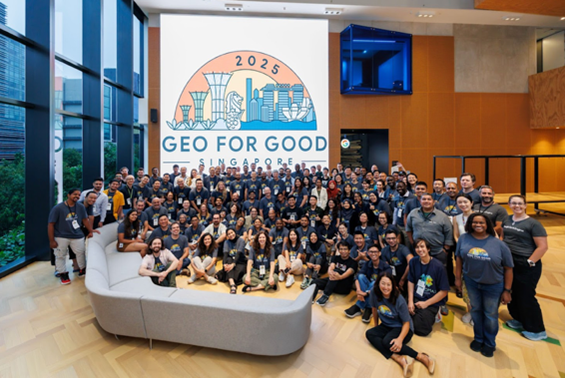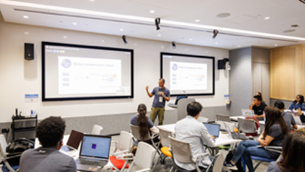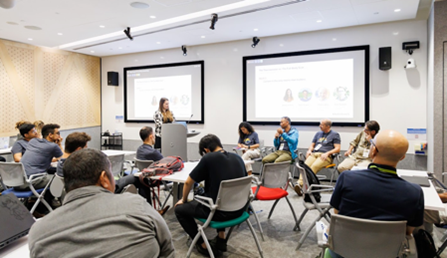2025 GEO for Good Summit Singapore was held on September 8 -11, and Dr. Genki Terauchi, senior researcher of the Northwest Pacific Environmental Cooperation Center (NPEC), host organization of CEARAC, presented NPEC activities there and exchanged ideas with international researchers and engineers who specialize in geospatial information.
He was invited as a guest speaker in two sessions: In the session, “Coastlines in Crisis: Mapping Change & Navigating Hazards,” Dr. Terauchi presented two tools based on Google Earth Engine (GEE), a cloud-based platform to analyze satellite data, with Dr. Robel ASHENAFI, a first-year doctoral course student in the Department of Environmental Science and Engineering, Graduate School of Science and Engineering, Soka University. One of the tools is Global Eutrophication Watch (GEW) to assess the eutrophication status in the ocean globally, and the other is Seagrass Mapper to map seagrass beds. During the other session, “What’s New with Data Catalogs,” he introduced that GEW has mounted the ESA-Climate Change Initiative (ESA-CCI) Open Data, a long-term time series data developed by the European Space Agency (ESA). When one audience asked him about usability of ESA-CCI data for monitoring harmful algal blooms (HABs), Dr. Terauchi explained the appropriate usage of the GEW tool, stating that GEW is suitable for observing long-term trends of water quality, while monitoring short-term phenomenon, such as HAB occurrence, would separately require a dedicated algorithm along with wind and current data. In addition, he emphasized the importance of incorporating a locally relevant datasets into GEE when no public datasets are available.
He also joined a panel discussion named “The Impact Equation Panel,” in which panelists discussed how to accurately evaluate project outcomes and disseminate such information to the world. While touching upon his experience, he emphasized the importance of demonstrating the justification for the project/activity in obtaining budgets and/or expanding its scale.
At 2025 Geo for Good Summit Singapore, Dr. Terauchi gained significant results, not only by introducing the current NPEC’s projects on research/assessment of oceans and coastal areas to the world, but also by receiving valuable advice regarding the future direction of NPEC’s marine environmental conservation.




